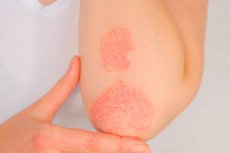New publications
Low stress tolerance is associated with an increased risk of developing psoriasis
Last reviewed: 02.07.2025

All iLive content is medically reviewed or fact checked to ensure as much factual accuracy as possible.
We have strict sourcing guidelines and only link to reputable media sites, academic research institutions and, whenever possible, medically peer reviewed studies. Note that the numbers in parentheses ([1], [2], etc.) are clickable links to these studies.
If you feel that any of our content is inaccurate, out-of-date, or otherwise questionable, please select it and press Ctrl + Enter.

Young people who have a harder time coping with stress are more likely to develop psoriasis later in life. Low stress tolerance at enlistment was associated with a 31% higher risk of developing psoriasis compared to high stress tolerance, according to a large registry-based study from the University of Gothenburg.
The study, published in the Journal of the European Academy of Dermatology and Venereology, is based on data from more than 1.6 million Swedish men who enlisted in the military between 1968 and 2005.
As part of the enrollment process, all men underwent a rigorous psychological assessment. Based on this assessment, the researchers divided the men's stress tolerance data into three levels. One-fifth (20.4%) of those enrolled were assigned to the lowest group, and another fifth (21.5%) to the highest group. More than half were assigned to an intermediate group.
The men's data were then cross-referenced with other registries. The National Patient Registry was used to obtain diagnosis codes for psoriasis and psoriatic arthritis.
About 36,000 men later developed psoriasis or psoriatic arthritis. Low stress tolerance in men is associated with a 31% higher risk of developing psoriasis compared with high stress tolerance.
More severe cases of psoriasis and psoriatic arthritis were also particularly strongly associated with stress. For hospital diagnoses, low stress tolerance meant a 79% higher risk of psoriasis and a 53% higher risk of psoriatic arthritis compared with high stress tolerance.
Psychological sensitivity
This is the first study to support the hypothesis that stress sensitivity is a risk factor for psoriasis. Since psoriasis is a chronic inflammatory systemic disease, the association with stress may be due to an increased inflammatory response in the body.
"We have shown that low stress tolerance in adolescence is a potential risk factor for psoriasis, at least for men," says lead study author Marta Laskowski, a doctoral student in dermatology at the University of Gothenburg and a resident at Sahlgrenska University Hospital.
"Our results indicate that people with psoriasis have a hereditary psychological vulnerability. Therefore, it is important that healthcare professionals also pay attention to the mental well-being of patients with psoriasis."
In estimating the increased risk, the researchers took into account other risk factors, such as body mass index (BMI) and socioeconomic factors. However, the study could only indirectly account for smoking, which is a well-known risk factor for psoriasis. The researchers note that one weakness of the study is that stress tolerance was only tested once, at enrollment when the men were 18 years old.
"Stress tolerance may vary across the lifespan," Martha adds. "However, we haven't had the opportunity to study these changes."
